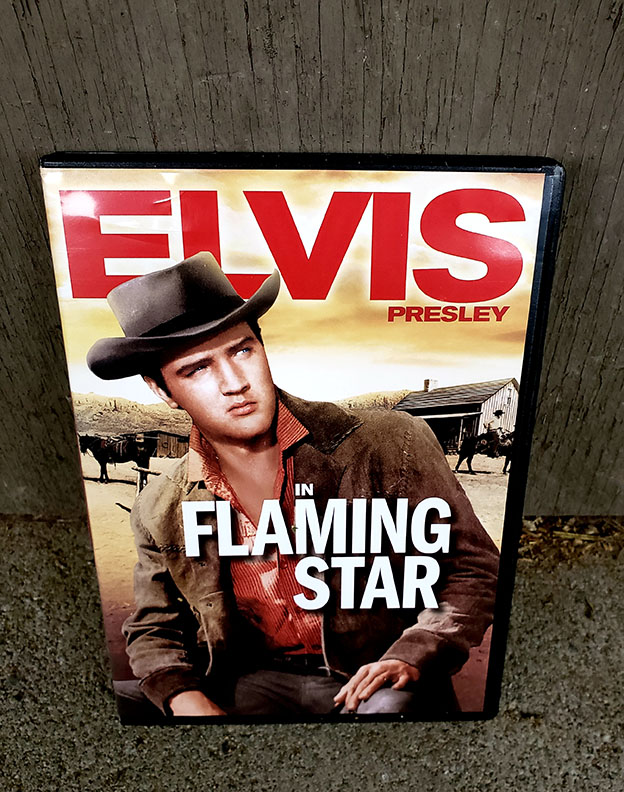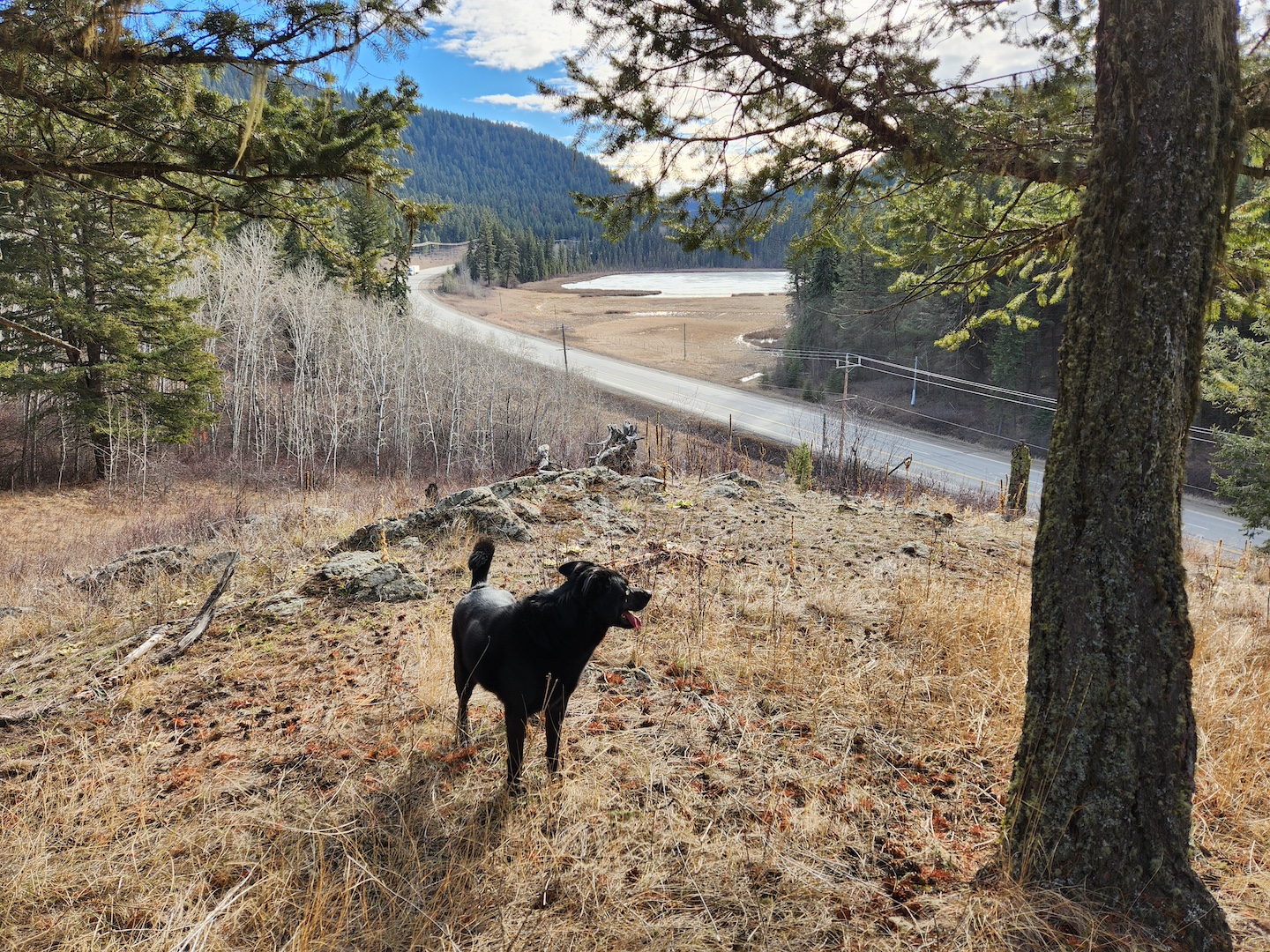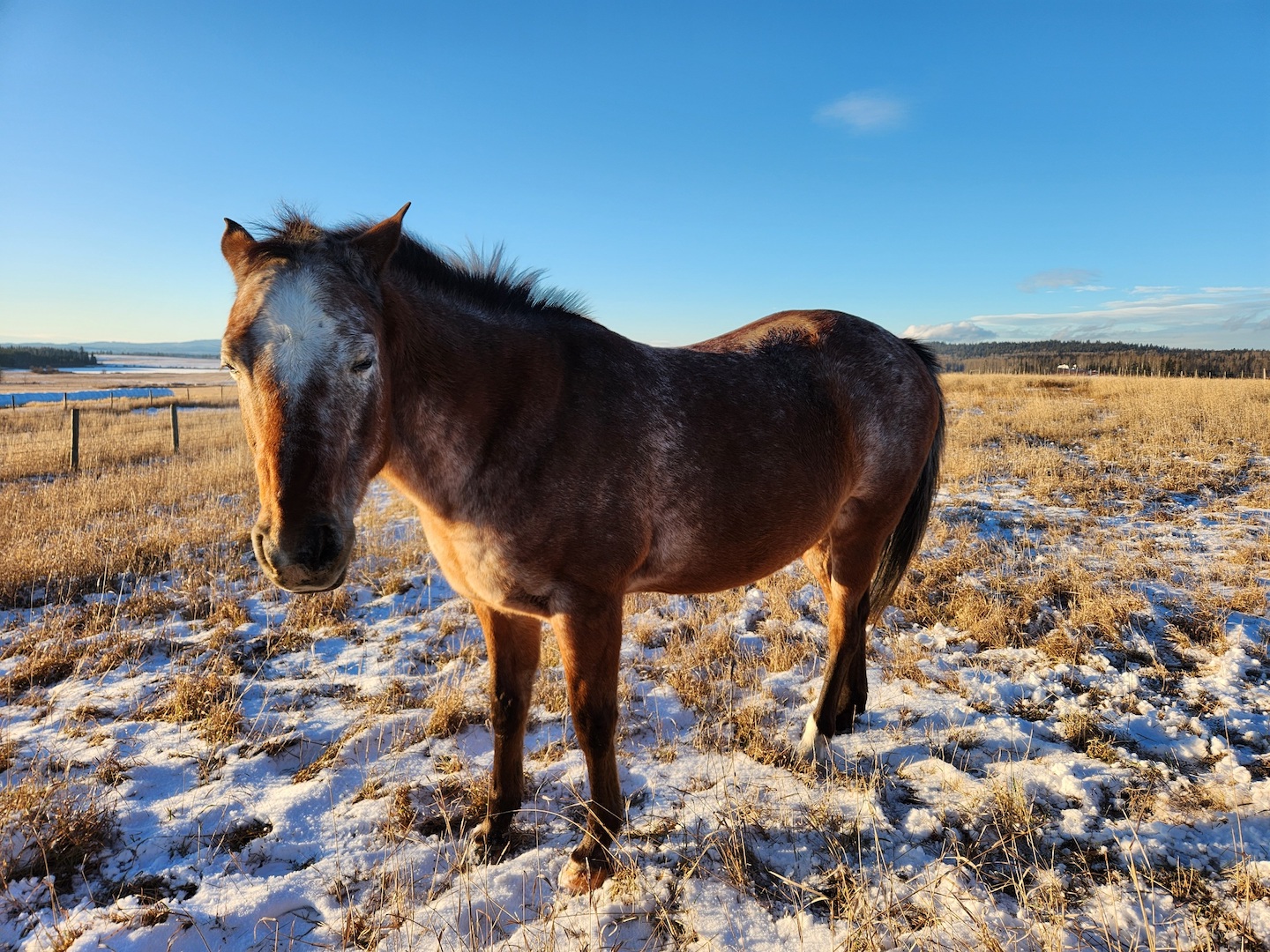Starring: Elvis Presley, Barbara Eden, Steve Forrest
Director: Don Siegel
Released: 1960
Mood: If you’re feeling super riled up about social activism but can’t concentrate because your brain is too busy wondering what Elvis would be like as the lead in a Western.
“They ain’t my people. To tell the truth, I don’t know who’s my people. Maybe I ain’t got any.”
Pacer Burton (Elvis Presley)
I legit had NO idea what to expect from Flaming Star when I spotted it in the $5 bin at Walmart.
I like Elvis alright. ‘Such a Night’ is one of my favourite songs, and one I’m determined to rock in a karaoke performance at least once in my lifetime (liquid courage permitting). I like some of his other songs, too, but not enough to consider myself a fan.
It was mostly curiosity that made me buy the DVD… and partly hope that it would be really f*cking awful, because my bad reviews are SO MUCH FUN to write.
Unfortunately (for me), it’s actually good.

The opening scenes of Flaming Star feel like a cheesy, ‘50s Disney-esque movie. The title song during the opening credits is, of course, by Elvis. Then a merry group of pioneers breaks into dance at the Burton homestead while Pacer (Elvis’ character) sings and strums a guitar.
Thankfully, that’s where the ridiculously wholesome merriment ends.
Apparently there were two other scenes in which Elvis sang, but he requested both cut because he was trying super hard to be taken seriously as an actor. One involved him singing to a Kiowa tribe around a campfire, accompanied by war drums, and the other was him singing while galloping on horseback.
Yeah, good call. Those both sound incredibly stupid.
Pacer is the son of a white pioneer father and a Kiowa mother. The neighbours all act cool with the Burtons (hence the merry dancing parties), until the Kiowa tribe starts attacking their homes. Then they quickly turn on the family, blaming them for the attacks.
The rest of the story gets dark real fast, with dramatic attacks and killings. Pacer is pressured by the Kiowa to join them, but he wants to stay out of the fighting. Meanwhile the white farmers are calling him racist names and being total dicks, even killing the Burtons’ herd.

Flaming Star is a commentary on racism and colonialism, and the story has good intentions. The pioneers steal Kiowa land, then get pissed when the Kiowa decide to take it back by force. They only accept Pacer and his mother, Neddy (Dolores del Rio), on the surface, and show their true colours quickly.
At the same time, the Kiowa also shun Neddy and tell her she’s no longer one of them. They tell Pacer that if he won’t fight with them, he is an enemy. It seems to do a decent job of capturing the struggle of being from two worlds, and not fitting into or being accepted by either.
The problem with Flaming Star is that although the story is about the harms of racism, it also perpetuates stereotypes and uses ‘generic’ POC casting.
The two main Kiowa characters, Neddy and Chief Buffalo Horn (Rodolfo Acosta) are both played by Mexican actors. Don’t get me wrong, Dolores del Rio is awesome. But if the whole point of the movie is to shine a light on racism, why put two obviously Mexican actors in the Native roles, like it doesn’t matter where they come from as long as they look brown?
The Kiowa tribe appears to be a mix of actual Native American people and (for the speaking parts) white people wearing black wigs – including Elvis’ friend Red West, who is about as white as you can get. The Kiowa dialogue is also pretty cringe-worthy most of the time.
Elvis was apparently 1/32 Cherokee, which I suppose they felt qualified him to play this role. And he was inducted into the L.A. Indian Tribal Council in honour of the performance. I think there was SOME effort to do right by the story (especially given that it was the early ’60s).

With that said, there’s some solid acting in this movie. Elvis is good at brooding and giving long looks. The fact that they kept his trademark pompadour was more than a bit distracting, and he looked like he was wearing a lot of darker-toned makeup. But I bought what he was selling.
The rest of the Burton family was also quite engaging, particularly Neddy and Pacer’s brother Clint (Steve Forrest). Nobody else stood out; Barbara Eden scored top billing as Roslyn Pierce, but the character was forgettable (other than the fact that her makeup and hair looked straight out of a fashion magazine rather than the Old West).
Clearly Flaming Star did some things right, because it got good reviews at the time. It was banned in South Africa, where segregation was still rampant, for showing a mixed race marriage. And Andy Warhol used a still of Elvis as Pacer to create various pieces of art including ‘Triple Elvis’.
Flaming Star isn’t going into my top 10 Westerns, or even my top 20. But I don’t regret watching it, and I thought Elvis himself was great. My boyfriend walked into our home halfway through the movie, watched a few minutes, and ended up sitting down to finish it with me because he was so surprised that Elvis was GOOD and not a novelty.
If you like Elvis, definitely add this one to your collection. Especially if you spot it in your local $5 bin.


